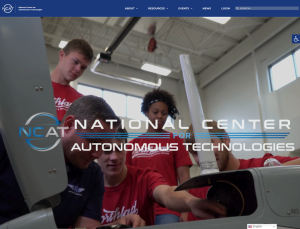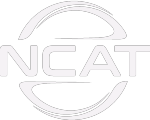National Center for Autonomous Technologies (NCAT)

In 2018, the MIT Technology Review defined emerging technologies as 'a technology, or perhaps even a collection of technologies, that will have a profound effect on our lives'. Autonomous Technologies (AT) fit that definition. Innovations in AT for Air, Land, and Sea are having a global impact on: 1) the environment: lowering emissions, carbon footprints, and helping combat climate change; 2) society: reducing human risks in emergency operations, delivering healthcare and medications, improving resource access, and enhancing supply chain efficiency; and 3) the economy: creating employment opportunities and growing GNP. According to the World Economic Forum and Cann, AT will result in a net employment increase of 58 million by 2030, and autonomous vehicles are projected to impact the US economy by $4 trillion. The National Center for Autonomous Technologies (NCAT) will provide valuable educational resources for technical education in this rapidly evolving, highly disruptive field. NCAT's leadership and collaborations with air and land standardization organizations will support the development of clear competency models, effective credentials, and workforce development roadmaps for accessible pathways in autonomous vehicle careers including drones, self-driving cars, and maritime exploration.
NCAT will build capacity across extensive networks through the following goals: 1) Lead: evolve and fortify partnerships and collaborations with standards organizations defining technician education, training programs, and industry-recognized certifications; 2) Inspire: advance student competition and experiential learning frameworks to facilitate the connections between student engagement and the impact on workforce development; 3) Connect: extend the national community and support networks that foster innovative industry engagement and educational collaborations to advance AT technician education programs, including work-based learning (WBL) initiatives; and 4) Serve: expand the educational resource hub with a focus on long-term sustainability and access to resources for community collaborators and partners across all AT in the Air, Land and Sea domains of industry
About


Comments